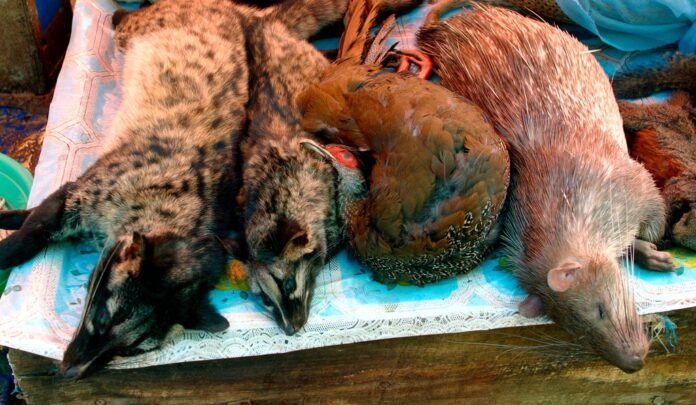Citing threat to public health, the World Health Organization (WHO) has called for a halt on the sale of live wild mammals in local markets, which are often the breeding grounds for a majority of the world’s pandemics, including COVID-19.
To prevent the emergence of new diseases, WHO, in collaboration with the World Organisation for Animal Health (OIE) and the United Nations Environment Programme (UNEP), has issued guidelines urging countries to “suspend the sale of captured live wild mammals in food markets as an emergency measure.”
It said, “Animals, particularly wild animals, are the source of more than 70 percent of all emerging infectious diseases in humans, many of which are caused by novel viruses. Wild mammals, in particular, pose a risk for the emergence of new diseases.”
“Traditional markets, where live animals are held, slaughtered and dressed, pose a particular risk for pathogen transmission to workers and customers alike.”
The global health agency also highlighted that some of the earliest known cases of COVID-19 were linked to a wholesale traditional food market at Wuhan in China, with many of the initial patients stall owners, market employees or regular visitors to the market. “It is likely that the virus that causes COVID-19 originated in wild animals, as it belongs to a group of coronaviruses normally found in bats,” the interim guidance by the WHO said.
The first action suggested by the authorities is to “suspend the trade in live caught wild animals of mammalian species for food or breeding purposes and close sections of food markets selling live caught wild animals of mammalian species as an emergency measure unless demonstrable effective regulations and adequate risk assessment are in place.”
It said that significant problems can arise when these markets allow the sale and slaughter of live animals, especially wild animals, which cannot be properly assessed for potential risks – in areas open to the public. When wild animals are kept in cages or pens, slaughtered and dressed in open market areas, these areas become contaminated with body fluids, faeces and other waste, increasing the risk of transmission of pathogens to workers and customers and potentially resulting in spill over of pathogens to other animals in the market. Such environments provide the opportunity for animal viruses, including coronaviruses, to amplify themselves and transmit to new hosts, including humans.


